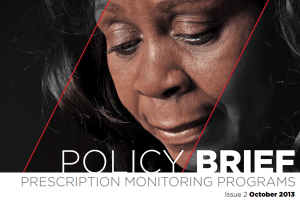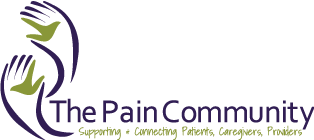
Prescription monitoring programs (PMPs, also known as prescription drug monitoring programs, or PDMPs) are state-operated databases that collect, store, and distribute information about controlled substance prescriptions. The specific characteristics of these programs (e.g., which controlled substance schedules are included, who can access the data, which agency runs the program, etc.) can vary from state to state, but nearly all are designed to help address the twin public health crises of prescription drug abuse and inadequately-treated chronic pain, with this objective stated explicitly in some PMP laws.
 In nearly every discussion about possible solutions to the prescription drug abuse problem, PMPs are mentioned as a key feature. Although less recognized by policymakers, PMPs also can be extremely helpful clinical tools for healthcare professionals treating people with conditions necessitating the use of controlled substances, including pain. As the “owner/operators” of PMPs, policymakers have a vested interest in facilitating the implementation and development of PMPs as effective tools.
In nearly every discussion about possible solutions to the prescription drug abuse problem, PMPs are mentioned as a key feature. Although less recognized by policymakers, PMPs also can be extremely helpful clinical tools for healthcare professionals treating people with conditions necessitating the use of controlled substances, including pain. As the “owner/operators” of PMPs, policymakers have a vested interest in facilitating the implementation and development of PMPs as effective tools.
This policy brief is a product of the Pain Action Alliance to Implement a National Strategy (PAINS), in collaboration with the Center for Practical Bioethics, the American Academy of Pain Management (AAPM), and the Pain and Policy Studies Group (PPSG) at the University of Wisconsin. It was funded by the United States Cancer Pain Relief Committee.
| Website | http://painsproject.org |
|---|---|
| Author(s) | Twillman, Bob, PhD, FAPM |
| Attribution | Courtesy of PAINS Project |
| Document | Download PDF |
